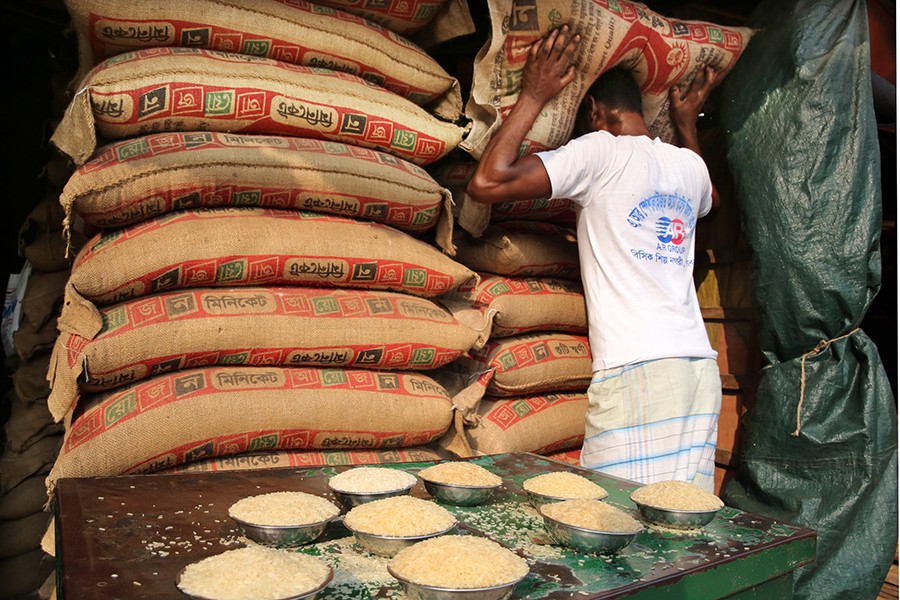The government hiked Wednesday the regulatory duty (RD) to 25 per cent from the existing 3.0 per cent to discourage rice imports.
Rice importers will now pay a total of 55 per cent duty and tax comprising 25 per cent customs duty, 25 per cent RD and 5.0 per cent advance income tax (AIT).
The rate of duty and tax was 28 per cent until Wednesday.
The National Board of Revenue (NBR) issued a statutory regulatory order (SRO) on the day increasing the rate of RD and imposing AIT with immediate effect.
Imports of husked (brown rice), fortified rice kernels, semi-milled or wholly-milled rice (whether or not polished or glazed) and broken rice will be liable to pay the revised duty rate.
"The NBR has kept the 25 per cent customs duty unchanged and increased RD from 3.0 per cent to 25 per cent," an NBR statement said.
"It has also imposed 5.0 per cent AIT on rice imports."
NBR chairman Md Mosharraf Hossain Bhuiyan said some 0.3 million tonnes of rice were imported in the first 10 months of this fiscal year, depriving farmers of fair prices.
"Local farmers have been forced to sell paddy at lower than their production cost. They are incurring huge financial losses," he continued.
To save the local peasantry from financial loss, the revenue board has increased import duty of rice as per the instruction of the prime minister, Mr Bhuiyan said.
Paddy prices at farmer level have fallen sharply due to bumper Boro yield this season.
According to the Department of Agricultural Marketing, paddy is selling at Tk 500-Tk 650 a maund (40 kg) across the country against the production cost of Tk 800-Tk 1000 a maund this Boro season.
The Boro farmers are counting losses to the tune of 40-60 per cent, according to the Bangladesh Krishok Samity and the Bangladesh Agricultural Farm Labour Federation.
In recent weeks, many poor farmers organised protests against low prices of their produce.
But industry insiders said RD imposition would not necessarily ensure fair prices of paddy for the rice growers as an insignificant amount of rice has been imported this year.
Market watchers said the paddy prices this season are unusually low though the rice prices at the retail level have remained unchanged.
Besides, the procurement of rice and paddy at the field level by the government has started late, leaving a negative impact on paddy prices. However, the food department prefer procuring rice from the millers who, obviously, are interested to buy paddy from the farmers at lower prices, experts said.
According to the import data of customs department, some 0.3 million tonnes of rice were imported this fiscal year (FY). In the last FY 3.9 million tonnes of milled rice were imported.

According to market insiders, good harvest and higher stocks in public and private sectors are the major causes of a decline in rice prices.
Lalit Kasara, an importer, said rice import has declined significantly following an increase in import duty to 28 per cent.
Importers would be greatly discouraged to import rice following the latest duty-hike, he observed.


